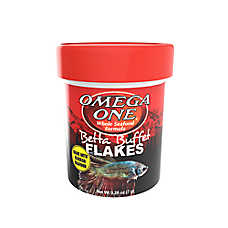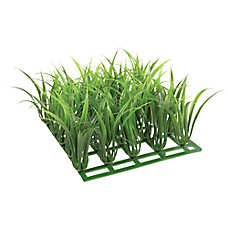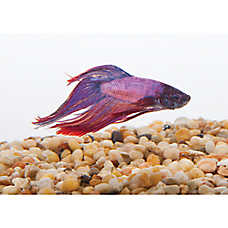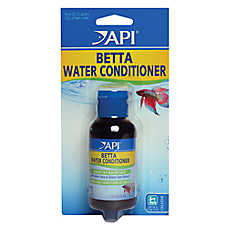How To Care for Your Betta Fish
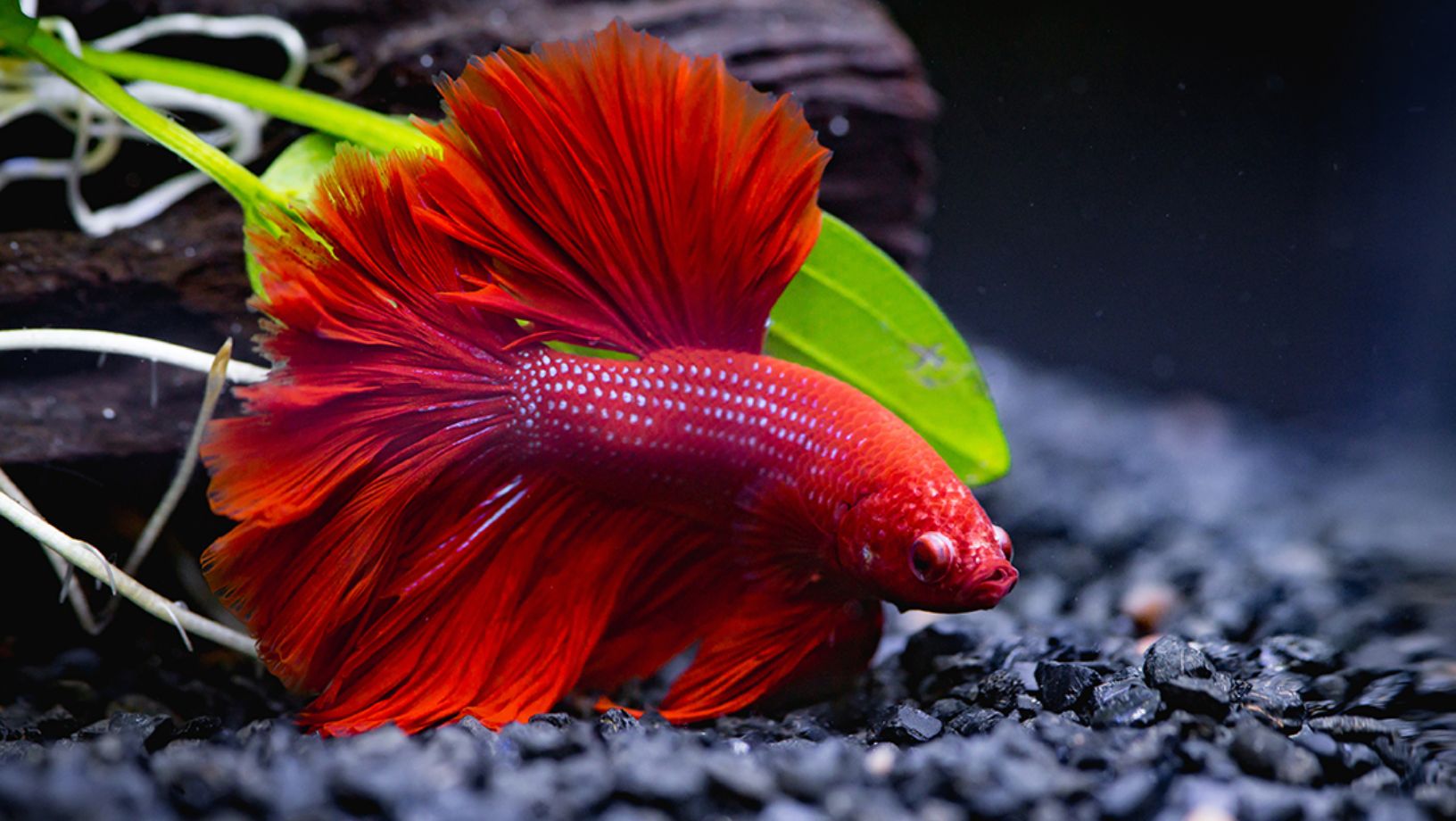
In this Article
Betta fish are an extremely popular pet fish. They are beautiful, colorful, and unique and make fantastic pets. For anyone considering whether or not they want to bring home a betta fish, learn all you need to know in this betta fish care guide including what size aquarium you need and what fish supplies you should buy.
The Basics of a Betta Fish
- Betta fish can live up to 3 years old.
- They can grow up to 3 inches long.
- A single male betta fish can sometimes be kept in a large community aquarium without any other bettas, but they should be monitored closely. If your betta shows any signs of aggression towards the other fish, remove the betta from the aquarium.
- Bettas are great beginner pets that don’t take up a lot of space.
How to Set Up the Best Betta Habitat:
Aquarium
- Bettas need an aquarium with at least 3 gallons (11 liters), a filter and a heater. Set up their new home at least one day before they arrive.
- The aquarium should be near a power source, in a low-traffic area, away from direct sunlight and drafts.
- Water weighs about 8 pounds per gallon. Pick a very sturdy, stable base for your aquarium, then fill the tank with water. There are special stands designed to support aquariums as well as betta fish starter kits to make sure you have all the basics.
Water
Your betta fish filter will help keep the water clean, but you’ll also need to make sure your fish’s tank stays at the right temperature. Betta fish water temperature should be around 77-82°F (23-27°C). Make sure to use dechlorinated water! Stores sell water dechlorinator and water conditioners to make sure their aquarium water is in perfect condition.
Filter
An aquarium filter should be able to process all of the water in the tank three to five times an hour. (For example, the filter in a 20-gallon tank would need to push through at least 60 gallons of water each hour.) Follow the manufacturer’s instructions for choosing and setting up the filter.
Heater
In order to keep your betta fish water temperature in the correct range, you can use an aquarium heater and thermometer. Choose an aquarium heater with 5 watts of power for each gallon of water in the aquarium. A large aquarium may need a heater at either end. Place the heater close enough to the filter to distribute the warmed water. Run the tank’s filter and the tank’s hood light for 24 hours, then check the water temperature and adjust the heater if necessary.
Light
Light isn’t the most important detail when it comes to caring for your betta fish, but you should mimic day and night cycles the best you can. It is not recommended to leave your Betta’s tank in direct sunlight, because that can cause algae to grow. Artificial aquarium lights can do the trick!
Substrate
Layer 1-2 inches of aquarium gravel on the bottom of the tank. (1½ pounds of gravel per gallon of water.) Rinse the gravel before putting it in the aquarium; never use soap.
Decor:
Decorate your betta fish aquarium with fish tank décor like artificial plants, ornaments and more to add some personality to their environment.
How Should I Introduce My Betta to Their Tank?
Once you bring your Betta home, place it in your aquarium — inside the bag that they came in— for 15 minutes so it can get used to the new water temperature. Next, use a net to transfer the betta into your aquarium. Do not add any water from the bag into your tank.
The chemical balance in your aquarium will change with every new fish you introduce, so check the water's pH, ammonia, nitrite and nitrate levels regularly using an aquarium test kit. Make sure to only add one fish at a time.
What Should I Feed My Betta Fish?
Feed your betta fish food flakes or betta fish pelleted food 1-2 times daily and follow the manufacturers recommendations for frequency. Bettas are carnivores, so supplement the betta fish food with frozen or freeze-dried brine shrimp or tubifex worms.
Will My Betta Ever Need to Go to The Vet?
If your bettas display any of these symptoms of illness or distress, talk to a veterinarian that is familiar with betta fish health:
- Decreased Appetite
- Fins Clamped to the Sides
- Scraping Body on Rocks
- Abdominal Swelling
- Inflamed or Discolored Skin or Fins
You can go to “Find a fish vet” at fishvets.org or wavma.org to find more information.
Betta Fish Safety Tips:
- Adults should assist children with handwashing after contact with a pet, its habitat or aquarium water.
- Fish and aquatic animals can transmit zoonotic diseases to humans. Wash your hands with soap and water before and after interacting with your aquarium. Children, pregnant women, elderly people and people with immune-system problems should take extra care.
- Keep fish away from food and areas where food is prepared.
- Never release fish into the wild.
- Do not use soaps or detergents to clean aquarium or décor, since they are toxic to fish.
Information in this article is not intended to diagnose, treat or cure your pet and is not a substitute for veterinary care provided by a licensed veterinarian. For any medical or health-related advice concerning the care and treatment of your pet, contact your veterinarian.
Frequently Asked Questions (FAQs)
What do betta fish need?
Betta fish need an aquarium, water, filter, heater, light, substrate, décor and food in order to live their best life.
How big of a tank does a betta fish need?
Bettas need an aquarium with at least 3 gallons (11 liters), a filter and a heater. Set up their new home at least one day before they arrive.
Do betta fish needs heaters?
In order to keep your betta fish water temperature in the correct range, you can use an aquarium heater and thermometer. Choose an aquarium heater with 5 watts of power for each gallon of water in the aquarium.
